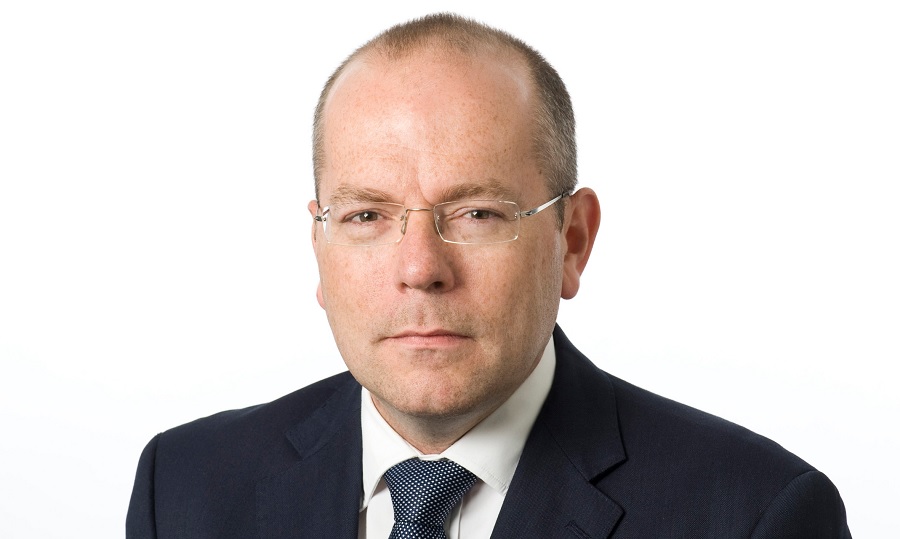Key to growth is breaking down barriers say FinTech North speakers

FinTech is a hot topic in the Northern Powerhouse, particularly in the Leeds City Region where the climate appears to be right for the development of a burgeoning sector.
It is also on the agenda of Government, which appointed Northern Fintech envoys at the Autumn Statement.
According to theLeeds City Region LEP, the area is a centre of excellence for both finance as well as technology, and business leaders say they are “primed and ready” to capitalise on the opportunity it presents.
Whitecap Consulting’s FinTech North event at the Leeds Digital Festival brought together a roomful of business owners, entrepreneurs and intermediaries to discuss the challenges faced by Northern tech businesses.
Two of the speakers, Estonian entrepreneur Karoli Hindricks of global tech jobs platform Jobbatical (pictured above) and FCA executive Chris Woolard spoke to TheBusinessDesk.com ahead of the event.
Hindricks said: “My background is kind of like a journey. I started my first business at 16 years old as a student company. I was born and had the first part of my childhood behind the wall, being born in the Soviet Union.
“In my personal life, I’ve seen a lot of isolation, and now I’m hearing a lot of talk about building walls and closing down. As someone who has seen it firsthand, people should be doing the opposite of that.”
“After the Soviet Union collapsed, I did an economical study programme,and was inspired by the fact I was chosen to lead a student company. This inspiration gave me the idea to develop reflectors, which was an innovative, unique idea and I became youngest inventor in my country.”
After selling hundreds of thousands of units of her invention, Hindricks moved into entertainment, working for Fox Entertainment and MTV in the Balkans.
Then, another idea came to her. Jobbatical is a platform “connecting globally minded companies” with potential job candidates, bringing adventurous tech and digitally-skilled employees to more exotic places.
“I had the idea of looking at where Estonia is positioned. I thought, no one in London will wake up thinking that next career move would be to Estonia. But I thought about how connected we are in the world. Individual friendships, where 10 years ago they would have been very local are now international.
“People more willing to move around, their comfort zones have expanded. I thought, how could we take those locations, which are outside the nerve centres of the world, and find people curious to discover somewhere new.
“What if we take those places and change the conversation? It’s not going for a week long holiday, you live like a local in those countries and cities, and it brings know-how and knowledge to them at the same time. The company then gets expertise it can’t get locally.”
From there, Jobbatical has grown to 44 countries, with a presence everywhere from the US and India to the Philippines.
This international aspect of Jobbatical resembles that of other fintech companies, which are aware of the need for clients and consumers to do transactions flexibly, freely and from any time zone. But the prevailing political situation seems to put a spanner in the works, receding from the globalisation that marked the 1990s and 2000s.
“In one sense, it’s a normal reaction from older generations to growing communities who are defining themselves more as global citizens. But after Brexit and November 9, we all questioned how is it possible?
“There is still this new balance in terms of how do we define countries. Every country should fight for the best people.
“The tech industry in the UK has already seen the impact of Brexit, which will force the UK and Europe to search for a new balance.
“After Brexit, traffic to Jobbatical from the UK grew, and we had the same reaction after November 9 from America. The interesting thing is that you see that there are people who understand the stage and they will start to look for opportunities outside UK
“From outside, the perception of UK and US has completely changed.”
To combat this perception, the UK will need to be flexible and work with businesses, and one of the organisations that is spearheading this is the Financial Conduct Authority.
Chris Woolard, executive FCA Board member and Director of Strategy at the organisation, also spoke to TheBusinessDesk prior to his appearance at FinTech North 2017.
“Fintech has been around for a long time, but three years ago lots of businesses in the innovation space came through.
“People think ‘a regulator will smother me in red tape’, and yet these are exact types of firms we want in the market to encourage greater competition, whether they become established players, or go head to head with directly with big brands. We want to make it easy to have a conversation with us,” he said.
Fast forward two and a half years, the FCA has spoken to around 700 businesses and given advice to 300 on how they might fit into regulatory landscape.
“We’ve reached a phase in our work where were asking where are the next waves of innovation coming from,” he said. “The UK leads the way in many ways around FinTech but it’s very much seen as a London thing.”
However he said: “The collision of financial and technology firms creates something special, and the Leeds-Manchester corridor is one of these. You need a real cocktail of ingredients to make this work.”
A strong base if financial firms as well as universities adds to the development of innovative clusters of businesses he said, and this was something to encourage.
“Fintech innovation,” he said, “Is not something we can ignore, it’s a phenomenon that offers quite considerable benefits for consumers. Where we think innovation will work in the interest of consumers, we will make it as easy as possible to navigate the regulatory landscape.”









